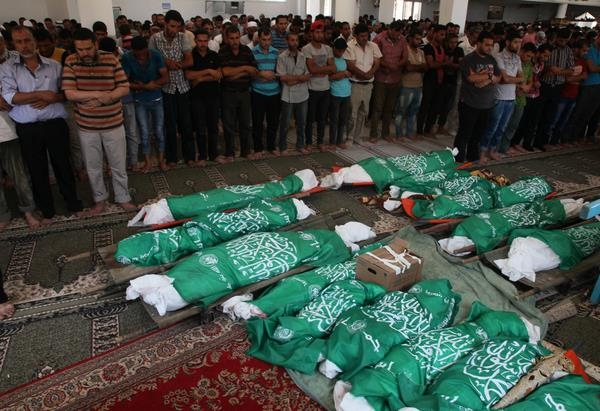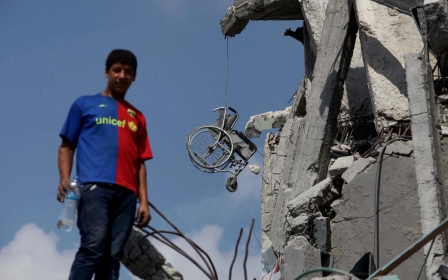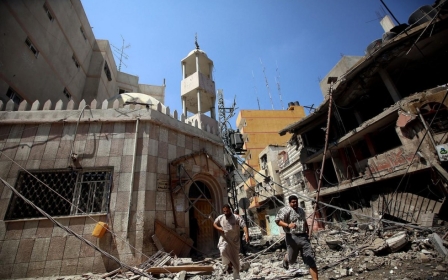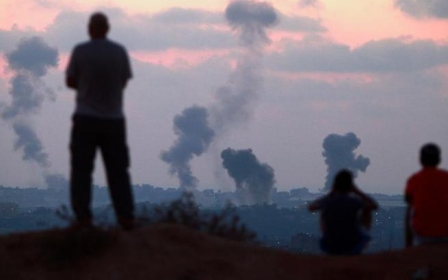Hamas dismisses Israel's Gaza probes as 'distorting the truth'
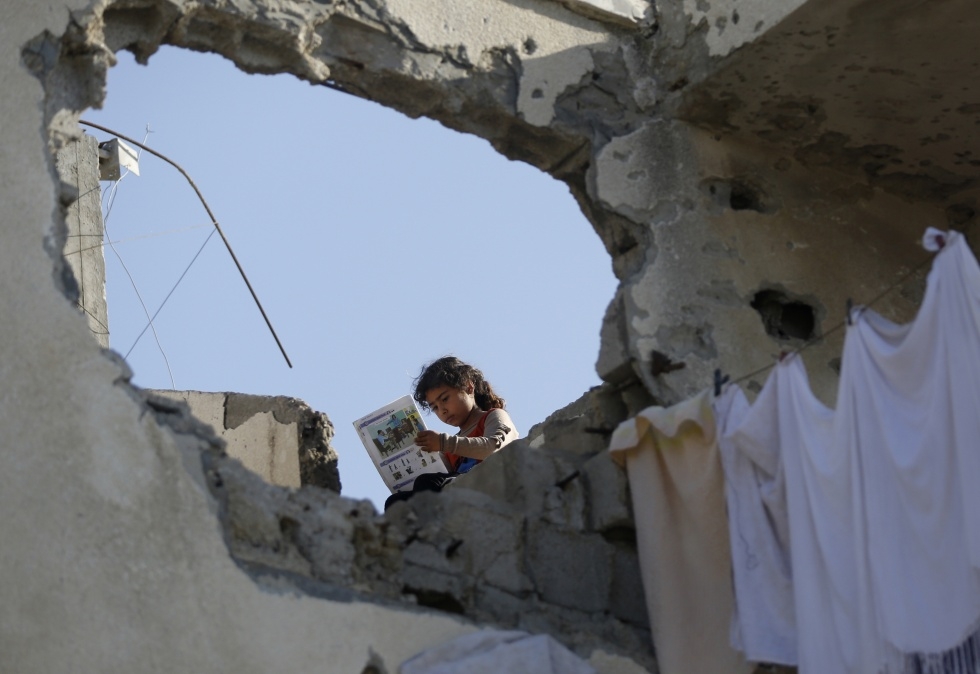
Palestinian Hamas movement dismissed an Israeli army decision to launch new probes into incidents which had occurred during this summer's offensive on the Gaza Strip.
"It is both irrational and unacceptable that the criminal himself would be the judge in an investigation," Hamas spokesman Fawzi Barhoum said on Sunday.
"We do not trust any of these Israeli probes which are aimed at distorting the truth."
Barhoum went on to call for a fair and transparent investigation by an international legal panel in order to "expose Israel's crimes and bring its leaders to international courts."
The Israeli army has ordered eight new probes into incidents that occurred during its 51-day offensive on the Gaza Strip this summer, Israeli media reported.
Military Advocate General Maj. Gen. Danny Efroni has ordered the new investigations into "exceptional incidents" that took place during the onslaught, Israeli daily Haaretz reported.
The eight new investigations announced on Saturday mean the army is now carrying out 13 separate investigations into its own conduct during the Gaza war.
In a statement, the Israeli military said its decision to open investigations proved a “continued commitment to the rule of law and international obligations.”
“Even in the fog of war, there are things that we expect ourselves to abide by,” said Israeli army spokesperson Peter Lerner.
The bombardment of Gaza, during which over 2,200 Palestinians, most of them civilians, and 73 Israelis, 64 of them soldiers, put Israel under pressure from the international community.
In July 2014, as the war was not yet a month old, the UN’s human rights chief Navi Pillay condemned Israel’s “indiscriminate attacks,” warning that they could amount to war crimes.
Among the new incidents to be investigated is a July 20 airstrike on the home of the Abu Jame family in Khan Younis, in the southern Gaza Strip.
27 Palestinians were killed in the attack – initial findings by Israeli rights group B’Tselem found that 25 members of the same family were killed when Israeli forces bombed their four-storey home.
The attack came apparently without warning as the family sat down to eat iftar, the evening meal with which Muslims break their fast during the holy month of Ramadan.
It is thought that the home was targeted because a Hamas operative, Ahmad Suleiman Sahmoud, was visiting at the time – Sahmoud was killed during the attack, along with 19 children and two pregnant women.
Two of the other incidents to be probed involve the death of a Palestinian ambulance driver caused by the actions of Israeli forces.
By the end of the war, Gaza’s Health Ministry calculated that 23 medical workers had been killed and 83 injured during the onslaught.
The United Nations has set up its own commission of inquiry into alleged war crimes committed during the bombardment, and is inviting individuals and groups to submit information relating to the investigation.
However, Israeli officials officially announced in November that they would not be co-operating with the investigation.
Foreign Minister spokesperson Emmanuel Nachson slammed what he called the UN’s “obsessive hostility towards Israel” and “the committee’s one-sided mandate.
The committee’s members were denied access to Israel, as they attempted to travel from Jordan to the Gaza Strip through the country.
Explaining his country’s decision not to co-operate with the investigation, Nachson said that “Israel is already examining and probing the events of Protective Edge,” the name given by the Israeli military to this summer’s operation in the Gaza Strip.
‘Poor track record’
Israel has previously shunned international investigations, preferring to conduct its own inquiries.
In late 2008 and 2009, the military launched 52 separate criminal investigations into its operations during a 22-incursion into the Gaza Strip that killed over 1,000 Palestinians and 13 Israelis.
Three people were charged after the Israeli military concluded its own investigations – the longest sentence handed down as a result was a seven month term for a soldier who stole a credit card.
Responding to reports that Israel will again be conducting its own inquiries into its military conduct, Bill van Esveld, a senior researcher at Human Rights Watch, said it was “positive.”
However, he warned that his organisation was concerned that accountability could be a key sticking point in the investigation.
“The poor track record of past investigations and the lack of accountability don’t give much hope that the same process will yield a just outcome this time.”
Earlier this year, two leading Israeli human rights organizations also accused the Israeli government of being unwilling to investigate rights violations committed during military onslaught on the Gaza Strip.
In the statement released by B'Tselem and Yesh Din, Israel's system of military law enforcement was slammed as "a complete failure."
New MEE newsletter: Jerusalem Dispatch
Sign up to get the latest insights and analysis on Israel-Palestine, alongside Turkey Unpacked and other MEE newsletters
Middle East Eye delivers independent and unrivalled coverage and analysis of the Middle East, North Africa and beyond. To learn more about republishing this content and the associated fees, please fill out this form. More about MEE can be found here.


